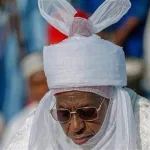U.S. Oil Imports Resume After Hiatus
The Dangote Petroleum Refinery has resumed importing crude oil from the United States after a three-month break. A shipment carrying two million barrels of WTI Midland crude from Chevron Corporation is expected at the refinery in December. This move raises questions about the sustainability of domestic crude supply agreements made with the Nigerian National Petroleum Company Limited (NNPCL).
A recent report by Bloomberg revealed, “Dangote Refinery purchased its first shipment of U.S. oil after a hiatus of three months as the site continues to ramp up production. The plant purchased about two million barrels of WTI Midland crude from Chevron Corp.”
Join our WhatsApp ChannelCrude Supply Challenges Persist
In August, the refinery scaled back imports of U.S. crude, shifting focus to a federal agreement. The deal required NNPCL to supply 400,000 barrels of Nigerian crude daily in exchange for payments in naira, a move aimed at reducing reliance on dollar transactions.
However, this arrangement has faced obstacles. Market observers suggest that insufficient domestic crude supply may have pushed the refinery to seek alternatives abroad. A report from Sparta Commodities speculated that recent decreases in shipping costs made U.S. oil a more viable option.
Addressing Refinery Needs
With a production capacity of 650,000 barrels per day, the Dangote Refinery needs consistent crude supplies to optimise operations. Reports indicate that it is negotiating with commercial banks and oil traders to secure funding for more crude oil purchases.
Aliko Dangote, the chairman of Dangote Group, emphasised the need for a steady supply during ongoing discussions with stakeholders. “The refinery requires at least 300,000 barrels of crude per day to reach optimal output,” he stated.
READ ALSO: Dangote Refinery Begins Petrol Export To Togo, Other West African Countries
Expanding Regional Impact
The refinery began exporting refined petroleum products to West African countries earlier this week. Industry experts see this as a significant step toward reshaping regional fuel markets. A trader noted, “This development could alter the dynamics of fuel imports in West Africa.”
Despite these advancements, challenges persist. The refinery has faced opposition from International Oil Companies (IOCs), which Dangote accused of withholding crude supplies to undermine operations. After intervention from the Nigerian government, local crude allocations resumed in naira.
National Support for a Strategic Asset
During a Senate Committee visit to the refinery, Vice President of Oil and Gas at Dangote Industries, Devakumar Edwin, highlighted the project’s uniqueness. “What Dangote Group achieved here is unprecedented. No international oil company, whether Shell, Chevron, or ExxonMobil, has built a refinery of this scale in any country,” Edwin said.
Senator Sadiq Umar, Chairman of the Committee on Trade and Investment, pledged legislative support. “This $20 billion refinery is not just a private venture—it’s a national asset. We will ensure it thrives for the benefit of all Nigerians,” he remarked.
Looking Ahead
Located in Lagos’ Lekki Free Zone, the Dangote Refinery commenced operations in January, initially producing diesel and aviation fuel. By September, it expanded to include premium motor spirits (PMS). As discussions about crude supply continue, the refinery’s strategy appears focused on balancing domestic needs with international market dynamics.
The resumption of U.S. crude imports underscores the ongoing complexities of Nigeria’s oil sector. The refinery remains central to the nation’s economic ambitions, aiming to bolster local production while influencing regional energy markets.
Emmanuel Ochayi is a journalist. He is a graduate of the University of Lagos, School of first choice and the nations pride. Emmanuel is keen on exploring writing angles in different areas, including Business, climate change, politics, Education, and others.
- Emmanuel Ochayihttps://www.primebusiness.africa/author/ochayi/
- Emmanuel Ochayihttps://www.primebusiness.africa/author/ochayi/
- Emmanuel Ochayihttps://www.primebusiness.africa/author/ochayi/
- Emmanuel Ochayihttps://www.primebusiness.africa/author/ochayi/



















Follow Us